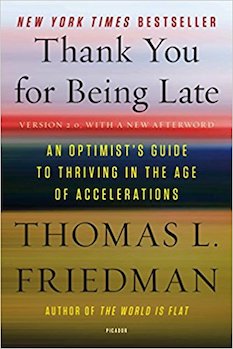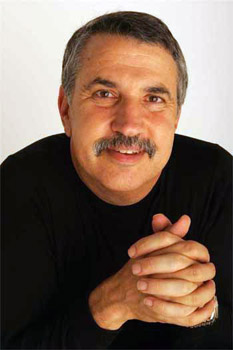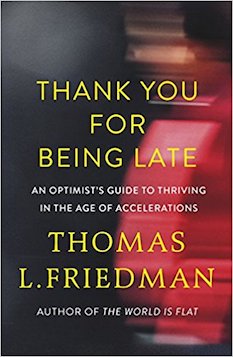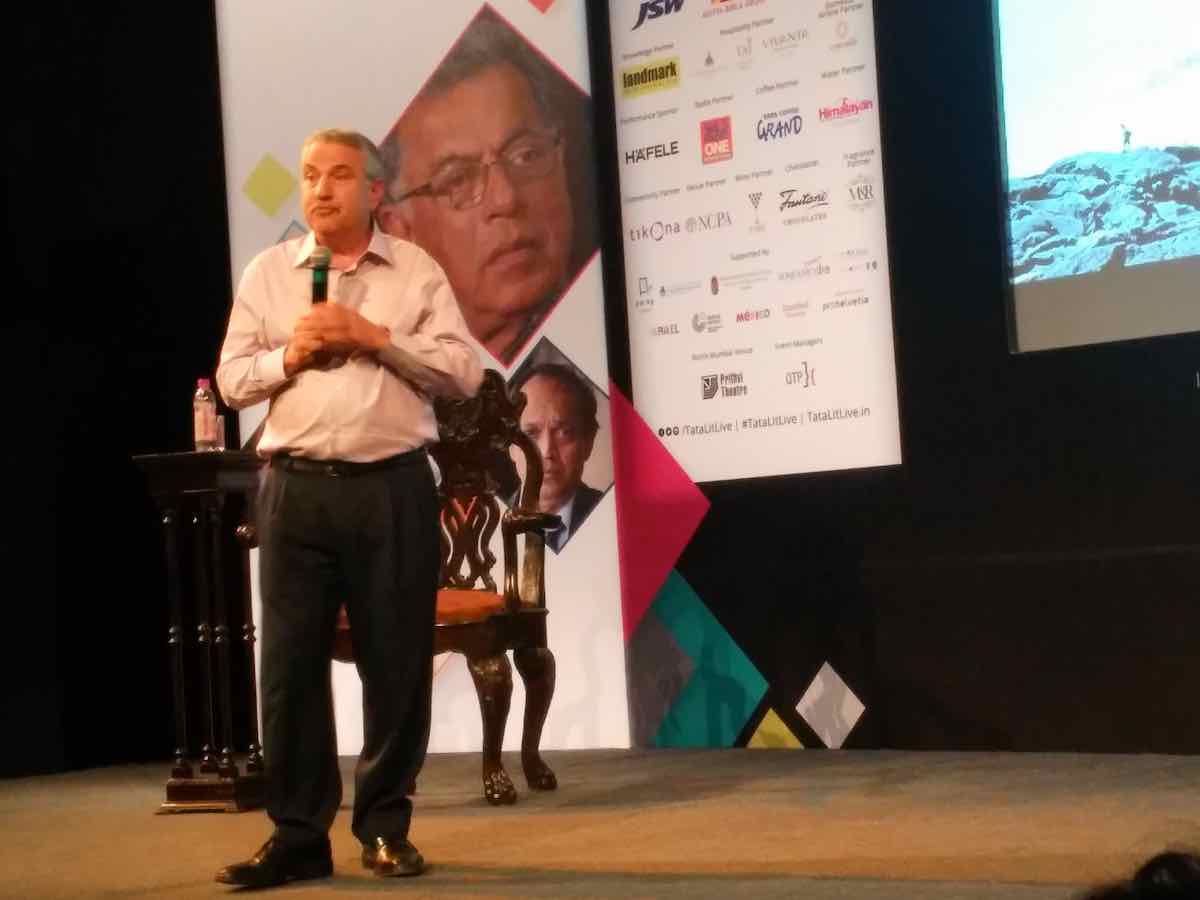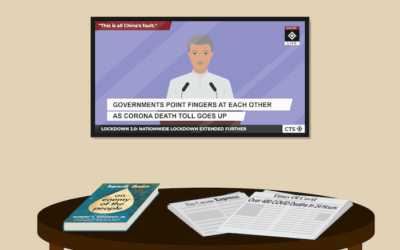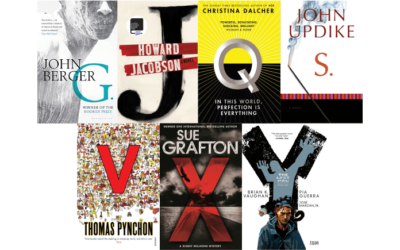Tata Literature Live!
Straight Talk: Thomas Friedman On Thank You For Being Late

Deepti Thomas
November 24, 2017
This article is part of our special coverage of Tata Lit Live!, a Bombay-based lit fest held between November 16, 2017, and November 19, 2017.
One of the most awaited sessions of Tata Literature Live! was a straight talk by multiple Pulitzer Prize winner, Thomas Friedman, on his latest book, Thank You for Being Late: An Optimist’s Guide to Thriving in the Age of Accelerations. He gave an enlightening speech on the changing world around us and how we can cope with it.
To demystify the age of acceleration, Friedman asks us to slow down and take a pause. In fact, he explained that the title of his book was inspired by an incident which occurred in Washington D.C. He was waiting for his breakfast companion who was 5 minutes late, and he used that time not only to observe the people around him and eavesdrop on neighbouring conversations but also to develop ideas, which he has explored in this book.
Friedman says, “When you pause a machine, it comes to a standstill; when a human pauses, he restarts”. Likening technological advances to the circuits in Moore’s Law, he claimed that the rate of advancement is doubling every two years and this is having a huge impact on globalization. In order to succeed, we must adapt to the new reality.
2007, I believe, will be seen in time as the single greatest technological inflection point since Gutenberg invented the printing press. – Thomas Friedman
Friedman brings our attention to the year 2007, which was a landmark year for technology but went completely unnoticed by the world. In 2007, Apple launched the iPhone; Facebook and Twitter went global; Android, GitHub, Hadoop and Kindle were launched; Airbnb was founded; Google acquired YouTube; IBM created its AI- Watson; and public cloud computing emerged. Friedman does not like the term ‘cloud’, which conjures soft and fluffy images, and argues that it is actually a technological supernova that is at the centre of everything we do now.
Friedman believes that we are currently going through three paradigm shifts – one in climate, second in globalisation, and third in technology. He explained that, in the past, one could leave fixing an environmental problem to the future. However, ‘the future’ is here and we need to address these issues now.
Regarding technology, he spoke of machines which can analyse patterns, optimise, prophesise, customise, digitise, and automate any job. Technology is moving at a pace far faster than our ability to adapt and change with the times. He said that instead of creating more artificial intelligence bots to replace humans, we must turn AI bots into intelligent assistants, using intelligent algorithms (IAs) to aid people so they can live better.
Friedman theorised that “gone are the times when one can rest on the laurels of degrees earned before the start of their career.” He gave the example of a program at AT&T where one can be a lifelong employee if he commits to being a lifelong learner, taking classes after work. According to him, if one is not constantly studying and learning the ‘new normal’ they will be outdated before they knew it. What one learns in the first year of college may become irrelevant by the fourth year.
We are going through changes in globalisation, shifting from an interconnected world to an independent one. People may not be dependent on others as much, but at the same time their ability to influence a complete stranger’s life, even if he is at the other end of the globe, has increased dramatically. It all depends on how we prepare ourselves to get the most out of these paradigm shifts and cushion ourselves from the worst.
The only way to survive this acceleration is to be incredibly adaptable, have diverse ecosystems, be entrepreneurial, and live sustainably. We need to be hybrid in our thinking. All companies and markets that constantly reinvent themselves, mirroring Mother Nature, will thrive.
In cyberspace, we are all interconnected and nobody is in charge… it’s a great time to be IBM, and it’s a great time to be ISIS. – Thomas Friedman
The power of an individual has grown to a point where a lone terrorist sitting in a bunker has the power to bomb a country on the other side of the world. To survive this ‘new world’, he suggested we live by our values, ethics, and develop a strong sense of community, as ultimately that is what will make us resilient.
He advises us to live by the golden rule “Do unto others as you would have them do unto you” because, in today’s world, more people can do ‘unto’ you than ever before. We are in the midst of a hurricane of change and it is up to us to learn how to live in the eye of the hurricane as it is not possible to “build a wall that keeps out the hurricane”.
Do you agree with Thomas Friedman or do you think he is exaggerating the problem? What changes do we need to make to our lifestyles in order to keep up with the ‘new normal’? Share with us in the comments below.
Receive articles like this in your inbox. Subscribe to our weekly newsletter and get the best of what to read from around the web.

Deepti Thomas
Deepti Thomas is a solo traveler and a storyteller at heart. She wonders if there is a Latin version of 'I write therefore I think'. She is often found lost in the passages of either a crime thriller or in the world of Tibetan Energy Medicine with the eternal hope of writing a book she would understand one day.
She works as a freelancer with The Curious Reader and also runs a home bakery for ketogenic desserts. Follow her on Instagram.

